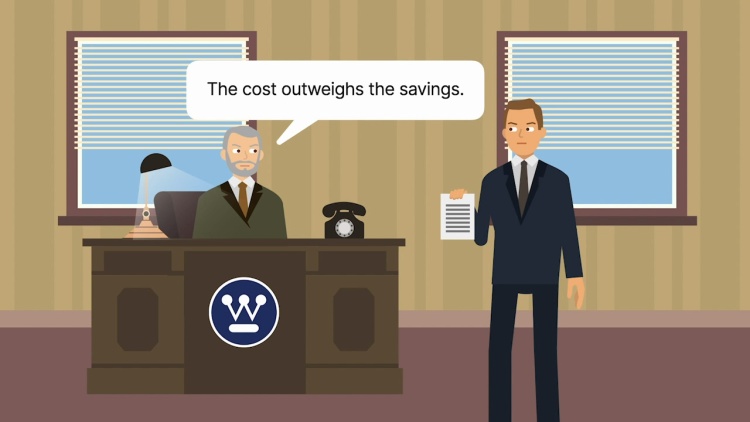Schott v. Westinghouse Electric Corporation
Pennsylvania Supreme Court
259 A.2d 443, 436 Pa. 279 (1969)
- Written by Joseph Bowman, JD
Facts
Schott (plaintiff) twice suggested to his company, Westinghouse Electric Corporation (Westinghouse) (defendant), that heavy gauge steel be used instead of aluminum to make circuit breakers as a cost saving measure. The suggestions were rejected on the ground that any cost savings would be offset by the cost of implementation. Westinghouse’s employee suggestion program awarded cash prizes between $5 and $15,000 for savings suggestions that were adopted. The suggestion form contained a disclaimer requiring the employee to accept the Suggestion Committee’s decision as to eligibility or amount of award. Westinghouse later adopted the suggestion but refused to give Schott an award because the idea was arrived at independently. Schott sued for breach of contract. Westinghouse’s preliminary objection that the complaint did not set out a claim for which relief could be given was granted. The trial court concluded that the disclaimer controlled and therefore no contract was formed. Schott amended the complaint to include a claim for damages for unjust enrichment. The trial court granted Westinghouse’s preliminary objection on the ground that the Suggestion Committee’s decision was final. Schott appealed that ruling to the Supreme Court of Pennsylvania.
Rule of Law
Issue
Holding and Reasoning (Pomeroy, J.)
Concurrence (Roberts, J.)
Dissent (Bell, C.J.)
What to do next…
Here's why 911,000 law students have relied on our case briefs:
- Written by law professors and practitioners, not other law students. 47,100 briefs, keyed to 997 casebooks. Top-notch customer support.
- The right amount of information, includes the facts, issues, rule of law, holding and reasoning, and any concurrences and dissents.
- Access in your classes, works on your mobile and tablet. Massive library of related video lessons and high quality multiple-choice questions.
- Easy to use, uniform format for every case brief. Written in plain English, not in legalese. Our briefs summarize and simplify; they don’t just repeat the court’s language.





